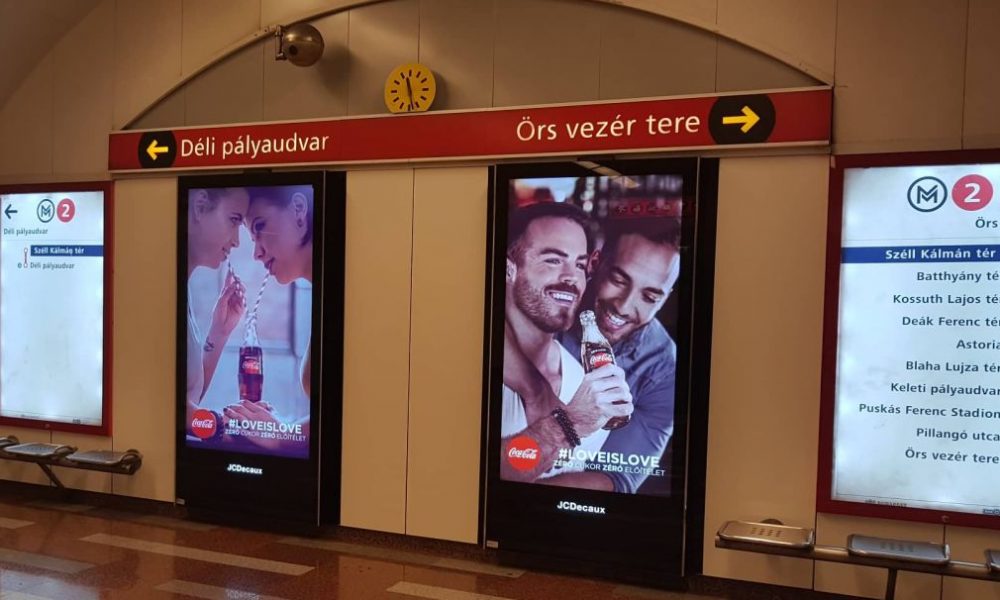
Multinational companies preach openness with ads
More and more multinational companies stand up for their left-wing and liberal views, and they seem to force them on consumers through advertisements. Issues like homosexuality, transgenderness, hatred against men or the unquestionability of multiculturalism have all been present in ads in recent years. No matter if it is a car manufacturer or a food industry company, the point is always the same: being normal is not right.
Transgenderness above all
We got used to peculiarities from Japan, so Toyota ads do not come as a surprise. In 2012, the car manufacturer released a commercial for Auris which included a transgender singer driving in a red car and fleeing on streets obviously generated by computer technology. The video was made for the „Daikanyama Art Street” art and music festival, sponsored by Toyota.
The transgender issue was so successful for the manufacturer that they used it again in 2017 in the new Auris ad. The video is not average by any means. It shows a red-haired woman wearing red underwear and a jacket walking towards a door. The viewer can see her face and bottom from the back and the front later. As she is approaching the car, she takes her jacket off, turns around, and it becomes clear for the viewer that she is a man. The ad stars 20-year-old androgynous model Stav Strashko who is a man but bears a striking resemblance to a woman. Strashko had a boyfriend at the time, and he prefered to be treated as a woman.
Granny loves drag queens
US-based Coca-Cola group s brand Sprite stood up for the homosexual agenda completely and maximised the presence of lesbian, gay, bi and transsexual (LGBT) people in its ads. Its commercial shows a mother who helps his son doing his make-up, a grandmother assisting her grandchild in dressing like a drag queen, a girl helping her transgender sibling to get ready, parents of small children painting a rainbow flag, and a father accompanying his son and his boyfriend to the Pride parade. The ad ends with the message that pride is what you feel when someone you love chooses to be free. The video was released a day before the Buenos Aires Pride.
Last summer, Hungary s public spaces were flooded with posters promoting homosexuality thanks to Coca-Cola. One poster showed a gay couple and another a lesbian couple drinking the same soda. Many considered the beverage manufacturer s campaign a provocation while others called for a boycott. The US company s posters were visible for only a few days, but the Hungarian Authority for Consumer Protection imposed a fine on Coca-Cola. The body claimed that Coca-Cola broke the law on advertisements which prohibits ads that might harm the physical, mental, emotional or ethical development of children and minors.

Men are trouble
Razor manufacturer Gilette was involved in a global scandal early last year as it merely attacked its main target group, men. The almost two-minute-long video reveals that men, especially white men, are basically jerks, they harass women, fight with each other, and they think the former is the essence of masculinity. The video reached 33 million views on YouTube and 1.5 million dislikes, so it is the 29th most disliked video on the platform at present. A spokesperson for Gillette said that the ad aimed to generate debate and claimed that it received many positive responses besides the negative reviews.
The brand got obsessed with educating people and released another video in May, showing a father teaching his transgender teenager son to shave.
However, the new agenda in commercials was not profitable as Gillette closed the second quarter of 2019 with an 8 billion dollar loss.
Multiculturalism is a must
After the 2015 European migration crisis, ads calling for accepting and supporting multiculturalism started to appear. One such commercial was made by UNESCO but financed by German taxpayers. The video calls for women to wear Muslim headscarves, and it shows a blonde woman wearing a hijab while her legs are not covered. She urges her German fellow countrywomen to „enjoy difference” and „start tolerance”. The controversial ad starts with the line „Turkish women wear the hijab”, and the blonde says she also wears it because it is beautiful.
Spaghetti in pink packaging
Gender hysteria reached the food industry as well. The best known global pasta producer, Barilla, offers its most popular product, Spaghetti No. 5 in pink packaging instead of the regular dark blue since last November. The pasta producer, which has majority US shareholders since 1971, changed the packaging to make its products more appealing to LGBTQ communities. The company s chief executive, Guido Barilla, said back in 2013 that homosexuality does not fit into the image of the traditional Italian family which was considered fundamental since Barilla s foundation in 1877. However, actress Sophia Loren, considered to be the eternal woman by many and the brand s ambassador, plays only a supporting role in Barilla s latest ad. She plays the Italian „Mamma” who cooks spaghetti to a dinner company of transsexual influencers, coloured models and homosexuals. The spaghetti in pink packaging is sold in the United States only, but the company announced it would also be introduced in other countries under „gender equality and diversity”.
Left-wing is always better
Mars Group s Twix brand published a controversial commercial which might have a severe political meaning. The video shows a group of tourists visiting the Left Twix factory (as there are two pieces in every package). A boy is continuously saying that they have already seen the same things in the Right Twix factory. The guide then presses a button, and the boy s mouth is taped. Naturally, no one will ever confess the hidden political meaning of silencing right-wing people, but it would not be a surprise, though.
Tags:

